Euro ramblings – Second Round Review by Jade Craddock
Another 12 games played and a host of talking points from Coca-Cola-gate (other fizzy drinks – and water – are available) to the first 0-0 draw between England and Scotland in England. So here’s a look at some of the highlights (and lowlights) of the second round.
 Goal of the round: Nothing quite to match Patrik Schik’s first-round effort this time out, though there were a couple of well-worked goals, including both of Wales’ goals against Turkey, Ronaldo’s tap-in after a perfect counter-attack against Germany and Kevin de Bruyne’s beautiful set-up for Thorgan Hazard. De Bruyne went one better with his winning strike against the Danes, but arguably Ivan Perisic’s strike against Croatia was the pick of the bunch. And on the subject of goals, both Patrick Schick and Cristiano Ronaldo picked up another goal apiece, to take their tallies to three each, but there’s a clear frontrunner for the Golden Boot at the moment – own goals. There had only been nine own goals in Euros history prior to this tournament, with the most at one tournament being the three scored in 2016. However, five own goals – over half of the total previously scored – have already been registered in the first two rounds of this year’s edition – including the opening goal of the tournament – with Portugal’s Ruben Dias and Raphael Guerreiro having the dubious honour of scoring two own goals in a single match for the first time in the tournament’s history. On a more positive note, Ronaldo’s third goal of the campaign saw him increase his Euros goals tally to 12 and edge just two away from Ali Daei’s international record, whilst this was also his 19th goal at World Cup and Euro Championships, equalling Miroslav Klose’s record. With a tricky match against France to close their group-stage account and keep their Euros ambitions alive, could Wednesday’s encounter be Ronaldo’s swansong at this tournament?
Goal of the round: Nothing quite to match Patrik Schik’s first-round effort this time out, though there were a couple of well-worked goals, including both of Wales’ goals against Turkey, Ronaldo’s tap-in after a perfect counter-attack against Germany and Kevin de Bruyne’s beautiful set-up for Thorgan Hazard. De Bruyne went one better with his winning strike against the Danes, but arguably Ivan Perisic’s strike against Croatia was the pick of the bunch. And on the subject of goals, both Patrick Schick and Cristiano Ronaldo picked up another goal apiece, to take their tallies to three each, but there’s a clear frontrunner for the Golden Boot at the moment – own goals. There had only been nine own goals in Euros history prior to this tournament, with the most at one tournament being the three scored in 2016. However, five own goals – over half of the total previously scored – have already been registered in the first two rounds of this year’s edition – including the opening goal of the tournament – with Portugal’s Ruben Dias and Raphael Guerreiro having the dubious honour of scoring two own goals in a single match for the first time in the tournament’s history. On a more positive note, Ronaldo’s third goal of the campaign saw him increase his Euros goals tally to 12 and edge just two away from Ali Daei’s international record, whilst this was also his 19th goal at World Cup and Euro Championships, equalling Miroslav Klose’s record. With a tricky match against France to close their group-stage account and keep their Euros ambitions alive, could Wednesday’s encounter be Ronaldo’s swansong at this tournament?
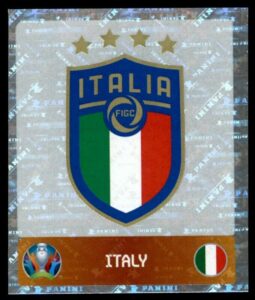 Standout team performance: There were a few standout performances across the round, not least from two of the three home nations, with Wales tapping back into the spirit of 2016 to see them earn a deserved victory against Turkey and all-but ensure qualification to the knockout round, whilst Scotland stepped up against the Auld Enemy to thwart England’s progress. After a dire start in Munich against France, Germany reminded everyone as to why they’re the most successful team in Euros history, with an impressive victory over Portugal, while both Belgium and Netherlands maintained their 100% start and eased into the Round of 16. However, my shout for team performance goes to Italy, who eased to another 3-0 win, becoming only the second team in the tournament’s history to begin the campaign with consecutive wins with margins of more than 3 goals. Despite not being on many people’s radars pre-tournament, Italy have in fact been on a very decent run, which has now seen them register 10 consecutive wins, and all of them without conceding a goal. They are 29 matches unbeaten, just one short of their record 30 matches between November 1935 and July 1939, and have scored some 80 goals. Defensive solidity is still at their core but they’ve added the deadly combination of goals – a team to watch surely.
Standout team performance: There were a few standout performances across the round, not least from two of the three home nations, with Wales tapping back into the spirit of 2016 to see them earn a deserved victory against Turkey and all-but ensure qualification to the knockout round, whilst Scotland stepped up against the Auld Enemy to thwart England’s progress. After a dire start in Munich against France, Germany reminded everyone as to why they’re the most successful team in Euros history, with an impressive victory over Portugal, while both Belgium and Netherlands maintained their 100% start and eased into the Round of 16. However, my shout for team performance goes to Italy, who eased to another 3-0 win, becoming only the second team in the tournament’s history to begin the campaign with consecutive wins with margins of more than 3 goals. Despite not being on many people’s radars pre-tournament, Italy have in fact been on a very decent run, which has now seen them register 10 consecutive wins, and all of them without conceding a goal. They are 29 matches unbeaten, just one short of their record 30 matches between November 1935 and July 1939, and have scored some 80 goals. Defensive solidity is still at their core but they’ve added the deadly combination of goals – a team to watch surely.
 Standout player performance: If ever a substitute changed a team’s fortunes, it was surely Kevin de Bruyne, who was introduced in the second-half when the Red Devils were 1-0 against Denmark and promptly cancelled out the deficit by calmly setting up Hazard. And just quarter of an hour later, he turned the game on its head with a beautifully struck shot to ease Belgium into the lead and through to the Round of 16. He exemplified the term ‘game-changer’. However, for me, Leonardo Spinazzola has been a revelation. A right-footed wing-back, he’s played the role to perfection on the front foot, always offering an outlet down the wing and often the furthest forward in the attack. Admittedly, he hasn’t been tested particularly defensively, but, as they say, attack is the best form of defence, and they don’t come more attacking in the wing-back role than Leonardo Spinazzola. Now 28, Spinazzola may just be at his peak, although if Chiellini and Bonucci are anything to go by, he should have another good 6–8 years yet.
Standout player performance: If ever a substitute changed a team’s fortunes, it was surely Kevin de Bruyne, who was introduced in the second-half when the Red Devils were 1-0 against Denmark and promptly cancelled out the deficit by calmly setting up Hazard. And just quarter of an hour later, he turned the game on its head with a beautifully struck shot to ease Belgium into the lead and through to the Round of 16. He exemplified the term ‘game-changer’. However, for me, Leonardo Spinazzola has been a revelation. A right-footed wing-back, he’s played the role to perfection on the front foot, always offering an outlet down the wing and often the furthest forward in the attack. Admittedly, he hasn’t been tested particularly defensively, but, as they say, attack is the best form of defence, and they don’t come more attacking in the wing-back role than Leonardo Spinazzola. Now 28, Spinazzola may just be at his peak, although if Chiellini and Bonucci are anything to go by, he should have another good 6–8 years yet.
 Newcomers: I can’t mention newcomers without mentioning Billy Gilmour. Named ‘Star of the Match’ (a moniker I’m not even going to go into right now) against England, Gilmour once again proved his quality and maturity as he has done every time he’s stepped onto the pitch in the last twelve months. Despite being only 20, his schooling with the likes of Kante and Jorginho clearly shows, and his battle against team-mate Mason Mount was one of the highlights of the England-Scotland match. For me, though, Denzel Dumfries of the Netherlands, who has been named ‘Star of the Match’ (I know, I know) in both of the Oranje’s matches, has been mightily impressive, starring at right-back but scoring in both of the opening fixtures – and in scoring in his first two Euros games, he matched the feat that has only ever been achieved by one other player – Ruud van Nistelrooy – and again, I reiterate, he’s a right-back. Aged just 22, he’s already making waves, and I’m sure the Premier League scouts are out in force to prise him away from PSV. And when it comes to youngsters, Jude Bellingham’s reign as the youngest ever player at the Euros was over almost as soon as it began with Poland’s Kacper Kozlowski taking the record when he was introduced as a sub against Spain, aged 17 years and 246 days. Anyone feeling old yet?
Newcomers: I can’t mention newcomers without mentioning Billy Gilmour. Named ‘Star of the Match’ (a moniker I’m not even going to go into right now) against England, Gilmour once again proved his quality and maturity as he has done every time he’s stepped onto the pitch in the last twelve months. Despite being only 20, his schooling with the likes of Kante and Jorginho clearly shows, and his battle against team-mate Mason Mount was one of the highlights of the England-Scotland match. For me, though, Denzel Dumfries of the Netherlands, who has been named ‘Star of the Match’ (I know, I know) in both of the Oranje’s matches, has been mightily impressive, starring at right-back but scoring in both of the opening fixtures – and in scoring in his first two Euros games, he matched the feat that has only ever been achieved by one other player – Ruud van Nistelrooy – and again, I reiterate, he’s a right-back. Aged just 22, he’s already making waves, and I’m sure the Premier League scouts are out in force to prise him away from PSV. And when it comes to youngsters, Jude Bellingham’s reign as the youngest ever player at the Euros was over almost as soon as it began with Poland’s Kacper Kozlowski taking the record when he was introduced as a sub against Spain, aged 17 years and 246 days. Anyone feeling old yet?
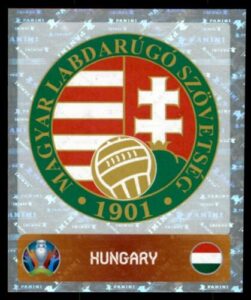 Surprise packages: Hungary versus France was seen as a shoo-in for the reigning World Cup winners who had eased past Germany, just four days before. However, the 60,000 fans in Budapest and the Magyars didn’t get the memo, shocking Les Bleus by going ahead at the end of the first half. Hungary couldn’t hold on to the lead as Antoine Griezmann equalised on 66 minutes, but a team boasting the likes of Mbappe, Benzema and Pogba couldn’t find a way past a determined Hungary side. A side it must be said whose 3-0 defeat by Portugal hugely flattered their opponents, after Hungary had held out for 84 minutes. A draw against the tournament favourites was little more than the side deserved, and it keeps the so-called Group of Death wide open. Whilst Hungary have proved a welcome surprise, Spain have been the opposite, managing just two underwhelming draws and scoring one goal. It is a team that remains blessed with talent but one that has become predictable and somewhat stale. With a prodigy like Adama Traore on the bench, someone who can genuinely effect games and terrorise defences, it seems unfathomable that he hasn’t featured at all in this tournament, even if not as a starter, he is the ideal option from the bench. Currently sitting third in their group and with a final match against Slovakia to play, Spain still have it all to do to qualify, and they’re going to need more than they’ve shown so far to do it.
Surprise packages: Hungary versus France was seen as a shoo-in for the reigning World Cup winners who had eased past Germany, just four days before. However, the 60,000 fans in Budapest and the Magyars didn’t get the memo, shocking Les Bleus by going ahead at the end of the first half. Hungary couldn’t hold on to the lead as Antoine Griezmann equalised on 66 minutes, but a team boasting the likes of Mbappe, Benzema and Pogba couldn’t find a way past a determined Hungary side. A side it must be said whose 3-0 defeat by Portugal hugely flattered their opponents, after Hungary had held out for 84 minutes. A draw against the tournament favourites was little more than the side deserved, and it keeps the so-called Group of Death wide open. Whilst Hungary have proved a welcome surprise, Spain have been the opposite, managing just two underwhelming draws and scoring one goal. It is a team that remains blessed with talent but one that has become predictable and somewhat stale. With a prodigy like Adama Traore on the bench, someone who can genuinely effect games and terrorise defences, it seems unfathomable that he hasn’t featured at all in this tournament, even if not as a starter, he is the ideal option from the bench. Currently sitting third in their group and with a final match against Slovakia to play, Spain still have it all to do to qualify, and they’re going to need more than they’ve shown so far to do it.

Moment: You might argue it comes to something when your moment of the round is the half-time entertainment, but then when that half-time entertainment is Micah Richards leading the karaoke it’s understandable. I’ve said it before and I’ll say it again, Micah Richards is TV Gold. And when there’s a stale 0-0 to try to cover in the fifteen-minute break, why not opt for a little sing-song instead? Ashley Williams and Alex Scott were the perfect sidekicks for Richards and if nothing else comes out of this Euros for the home nations, we may just have found our next Eurovision trio right there. Analysing matches is all well and good, but let’s be honest, we’re all there for the pundit shenanigans. Next up, Roy Keane, Gary Neville and Graeme Souness have a half-time rap battle. Okay, maybe that’s just wishful thinking.
 England: The concerns going into the tournament for England were all about defence and how on earth the Three Lions would cope without Harry Maguire. Blessed with perhaps the greatest array of attacking talent in a generation, the only questions about England’s front line was how to fit them all in. However, two games down and that has totally switched. The defence, marshalled it has to be said by Harry Maguire’s replacement Tyrone Mings, has kept two clean sheets and been largely untroubled, whilst a four-pronged attack has registered just one goal and didn’t record a single shot on target in the first half against Scotland. It felt as if this match brought England crashing back down to earth, against a Scotland side who were resolute and determined but who rank some forty places below their Auld Enemy. In many ways, it was a sort of throwback, an old-fashioned tussle of yore, with a few more multicoloured boots than in the past. It wasn’t particularly pretty, the good old Blighty weather didn’t let the side down, and the first twenty-five minutes was more about the foul count than the pass count, with some proper duels between Mings and Stones and Adams and Dykes, and Mason Mount and Billy Gilmour who seemed to forget they’re Chelsea teammates. Mount and Rice were arguably the best of a disappointing bunch, with another solid display by Mings and Jordan Pickford putting on a good performance. With one match to go, England’s fate will be decided against the Czech Republic and whilst it’s not all doom and gloom, there is definitely need for improvement, and maybe it’s time for a change to personnel and shape.
England: The concerns going into the tournament for England were all about defence and how on earth the Three Lions would cope without Harry Maguire. Blessed with perhaps the greatest array of attacking talent in a generation, the only questions about England’s front line was how to fit them all in. However, two games down and that has totally switched. The defence, marshalled it has to be said by Harry Maguire’s replacement Tyrone Mings, has kept two clean sheets and been largely untroubled, whilst a four-pronged attack has registered just one goal and didn’t record a single shot on target in the first half against Scotland. It felt as if this match brought England crashing back down to earth, against a Scotland side who were resolute and determined but who rank some forty places below their Auld Enemy. In many ways, it was a sort of throwback, an old-fashioned tussle of yore, with a few more multicoloured boots than in the past. It wasn’t particularly pretty, the good old Blighty weather didn’t let the side down, and the first twenty-five minutes was more about the foul count than the pass count, with some proper duels between Mings and Stones and Adams and Dykes, and Mason Mount and Billy Gilmour who seemed to forget they’re Chelsea teammates. Mount and Rice were arguably the best of a disappointing bunch, with another solid display by Mings and Jordan Pickford putting on a good performance. With one match to go, England’s fate will be decided against the Czech Republic and whilst it’s not all doom and gloom, there is definitely need for improvement, and maybe it’s time for a change to personnel and shape.
 Group F: Hungary (1) 1 – 1 (0) France
Group F: Hungary (1) 1 – 1 (0) France Group F: Portugal (0) 2 – 4 (0) Germany
Group F: Portugal (0) 2 – 4 (0) Germany Group E: Spain (1) 1 – 1 (0) Poland
Group E: Spain (1) 1 – 1 (0) Poland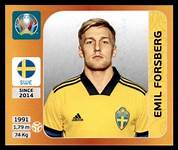 Group E: Sweden (0) 1 – 0 (0) Slovakia
Group E: Sweden (0) 1 – 0 (0) Slovakia Group D: Croatia (0) 1 – 1 (1) Czech Republic
Group D: Croatia (0) 1 – 1 (1) Czech Republic Group D: England (0) 0 – 0 (0) Scotland
Group D: England (0) 0 – 0 (0) Scotland Group C: Ukraine (2) 2 – 1 (0) North Macedonia
Group C: Ukraine (2) 2 – 1 (0) North Macedonia Group B: Denmark (1) 1 – 2 (0) Belgium
Group B: Denmark (1) 1 – 2 (0) Belgium Group C: Netherlands (0) 0 – 0 (0) Austria
Group C: Netherlands (0) 0 – 0 (0) Austria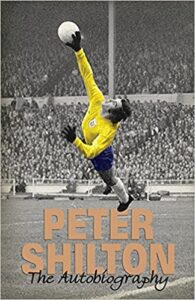 GK: Peter Shilton – The Autobiography/Saved – England’s record appearance maker, Peter Shilton won some 125 caps across a career spanning two decades. He represented England at five major tournaments, including Euro 1980 and 1988 and the 1982, 1986 and 1990 World Cup, and shares the record for most World Cup clean sheets (10) with Fabien Barthez. Peter Shilton’s domestic career took in some 11 teams, including Leicester City, Stoke City and Notts Forest. His forthcoming second autobiography, Saved, to be published in September, will reflect on his struggle with gambling.
GK: Peter Shilton – The Autobiography/Saved – England’s record appearance maker, Peter Shilton won some 125 caps across a career spanning two decades. He represented England at five major tournaments, including Euro 1980 and 1988 and the 1982, 1986 and 1990 World Cup, and shares the record for most World Cup clean sheets (10) with Fabien Barthez. Peter Shilton’s domestic career took in some 11 teams, including Leicester City, Stoke City and Notts Forest. His forthcoming second autobiography, Saved, to be published in September, will reflect on his struggle with gambling. Def: Rio Ferdinand – Rio: My Story/Rio: My Decade as a Red/#2Sides – My Autobiography/Thinking Out Loud – With no autobiography by arguably England’s best ever defender, Bobby Moore, Rio Ferdinand steps in as England’s second-most capped central defender (behind Bobby Moore), with some 81 caps and 3 goals. Featuring for England from 1997 through to 2011, Ferdinand was included in three World Cup squads, as well as Euro 2008. Domestically, he won the Premier League, League Cup, Community Shield, Champions League and Club World Cup. His most recent book was published in 2017.
Def: Rio Ferdinand – Rio: My Story/Rio: My Decade as a Red/#2Sides – My Autobiography/Thinking Out Loud – With no autobiography by arguably England’s best ever defender, Bobby Moore, Rio Ferdinand steps in as England’s second-most capped central defender (behind Bobby Moore), with some 81 caps and 3 goals. Featuring for England from 1997 through to 2011, Ferdinand was included in three World Cup squads, as well as Euro 2008. Domestically, he won the Premier League, League Cup, Community Shield, Champions League and Club World Cup. His most recent book was published in 2017. MF: Bobby Charlton – My Manchester United Years/My England Years/My Life in Football/1966: My World Cup Story – One of England’s 1966 heroes, Bobby Charlton won the Ballon d’Or in the same year and was also named FWA Footballer of the Year. He sits seventh on the list of appearances for England, with 106, and second on the list of top goal-scorers, having notched 49 in his career. A noted member of the Busby Babes, Charlton made over 600 appearances for Manchester United and had a career spanning nearly 25 years. Charlton’s clutch of autobiographies cover his impressive career, with the latest charting that epic World Cup triumph.
MF: Bobby Charlton – My Manchester United Years/My England Years/My Life in Football/1966: My World Cup Story – One of England’s 1966 heroes, Bobby Charlton won the Ballon d’Or in the same year and was also named FWA Footballer of the Year. He sits seventh on the list of appearances for England, with 106, and second on the list of top goal-scorers, having notched 49 in his career. A noted member of the Busby Babes, Charlton made over 600 appearances for Manchester United and had a career spanning nearly 25 years. Charlton’s clutch of autobiographies cover his impressive career, with the latest charting that epic World Cup triumph. MF: Kevin Keegan – My Autobiography/My Life in Football – The only English footballer to have won the Ballon d’Or twice, Kevin Keegan captained England at Italy 1980. However, with England missing out on both the 1974 and 1978 World Cups, Keegan featured only in Spain 1982, but briefly due to injury. Across his career, Keegan won 63 caps and scored 21 goals, whilst domestic success came most notably at Liverpool. Following management spells with Newcastle and Fulham, Keegan stepped into the England role for one year. His second autobiography was published in 2018.
MF: Kevin Keegan – My Autobiography/My Life in Football – The only English footballer to have won the Ballon d’Or twice, Kevin Keegan captained England at Italy 1980. However, with England missing out on both the 1974 and 1978 World Cups, Keegan featured only in Spain 1982, but briefly due to injury. Across his career, Keegan won 63 caps and scored 21 goals, whilst domestic success came most notably at Liverpool. Following management spells with Newcastle and Fulham, Keegan stepped into the England role for one year. His second autobiography was published in 2018.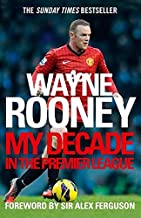 Striker: Wayne Rooney – The Way It Is/My Decade in the Premier League – Wayne Rooney holds the record as both England’s youngest ever goalscorer and the Three Lions’ top scorer, having bagged 53 goals in 120 appearances – whilst sitting second in the most caps chart. His England career spanned some 15 years, including appearances at Euro 2004, 2012 and 2016, and World Cup 2006, 2010 and 2014. Domestically, he holds the record as Manchester United’s top goalscorer, with 253 goals to his name, and is one of only two English players to have won the Premier League, FA Cup, Champions League, League Cup, Europa League and Club World Cup. His second autobiography was published in 2012.
Striker: Wayne Rooney – The Way It Is/My Decade in the Premier League – Wayne Rooney holds the record as both England’s youngest ever goalscorer and the Three Lions’ top scorer, having bagged 53 goals in 120 appearances – whilst sitting second in the most caps chart. His England career spanned some 15 years, including appearances at Euro 2004, 2012 and 2016, and World Cup 2006, 2010 and 2014. Domestically, he holds the record as Manchester United’s top goalscorer, with 253 goals to his name, and is one of only two English players to have won the Premier League, FA Cup, Champions League, League Cup, Europa League and Club World Cup. His second autobiography was published in 2012. Manager: Bobby Robson – An Autobiography/Bobby Robson: An Englishman Abroad/Farewell but not Goodbye/My Kind of Toon – Whilst it was Alf Ramsey who led England to World Cup success, it was Bobby Robson who oversaw their best post-World Cup campaign, prior to Gareth Southgate’s arrival, leading the Three Lions to the semi-finals of Italia 90. He was at the helm for eight years, winning some 47 of his 95 games in charge, and led England at Mexico 1986 and Euro 1988. As a player, he represented England 20 times, scoring 4 goals, and had a successful managerial career at Ipswich, Barcelona and notably his hometown of Newcastle. As well as a number of autobiographies, Harry De Cosemo’s Black and White Knight was published earlier this year.
Manager: Bobby Robson – An Autobiography/Bobby Robson: An Englishman Abroad/Farewell but not Goodbye/My Kind of Toon – Whilst it was Alf Ramsey who led England to World Cup success, it was Bobby Robson who oversaw their best post-World Cup campaign, prior to Gareth Southgate’s arrival, leading the Three Lions to the semi-finals of Italia 90. He was at the helm for eight years, winning some 47 of his 95 games in charge, and led England at Mexico 1986 and Euro 1988. As a player, he represented England 20 times, scoring 4 goals, and had a successful managerial career at Ipswich, Barcelona and notably his hometown of Newcastle. As well as a number of autobiographies, Harry De Cosemo’s Black and White Knight was published earlier this year. GK: Jim Leighton – In the Firing Line – With 91 caps to his name, Jim Leighton is the most capped Scottish goalkeeper, whilst sitting behind only Kenny Dalglish overall. His Scotland career spanned some 16 years from 1982 to 1998, which included two World Cups in 1986 and 1990. Whilst he missed out on Euro 92 and Euro 96, he returned as number one in the World Cup 1998 qualification and became the oldest player to play for Scotland aged 40 years and 78 days before David Weir surpassed this. His autobiography was published in 2000.
GK: Jim Leighton – In the Firing Line – With 91 caps to his name, Jim Leighton is the most capped Scottish goalkeeper, whilst sitting behind only Kenny Dalglish overall. His Scotland career spanned some 16 years from 1982 to 1998, which included two World Cups in 1986 and 1990. Whilst he missed out on Euro 92 and Euro 96, he returned as number one in the World Cup 1998 qualification and became the oldest player to play for Scotland aged 40 years and 78 days before David Weir surpassed this. His autobiography was published in 2000. Def: Willie Miller – The Miller’s Tale/The Don/Willie Miller’s Aberdeen Dream Team – Described by Sir Alex Ferguson as ‘the best penalty box defender in the world’, Willie Miller featured for Scotland from 1975 to 1989, amassing 65 caps and one goal. He competed at the 1986 World Cup, but injury meant he missed out in 1990 and ultimately had to retire. Miller’s domestic career was spent entirely at Aberdeen (with a brief loan spell at Peterhead), where he notched up a club record 560 appearances, as well as 21 goals, in a 19-year career. He has three books to his name.
Def: Willie Miller – The Miller’s Tale/The Don/Willie Miller’s Aberdeen Dream Team – Described by Sir Alex Ferguson as ‘the best penalty box defender in the world’, Willie Miller featured for Scotland from 1975 to 1989, amassing 65 caps and one goal. He competed at the 1986 World Cup, but injury meant he missed out in 1990 and ultimately had to retire. Miller’s domestic career was spent entirely at Aberdeen (with a brief loan spell at Peterhead), where he notched up a club record 560 appearances, as well as 21 goals, in a 19-year career. He has three books to his name.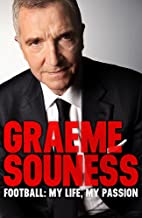 MF: Graeme Souness – No Half Measures/Graeme Souness: A Manager’s Diary/Souness: The Management Years/Graeme Souness – Football: My Life, My Passion – Across 12 years, Graeme Souness made 54 appearances for the Tartan Army, scoring four goals. In his time, he featured at three World Cups, including Argentina 1978, Spain 1982 and Mexico 1986. At club level, he made his name captaining a Liverpool side that dominated in the late 1970s/early 1980s before moving on to Sampdoria and later Rangers. A twenty-year managerial career ended at Newcastle in 2006 before Souness made the move into the media. His most recent autobiography was published in 2017.
MF: Graeme Souness – No Half Measures/Graeme Souness: A Manager’s Diary/Souness: The Management Years/Graeme Souness – Football: My Life, My Passion – Across 12 years, Graeme Souness made 54 appearances for the Tartan Army, scoring four goals. In his time, he featured at three World Cups, including Argentina 1978, Spain 1982 and Mexico 1986. At club level, he made his name captaining a Liverpool side that dominated in the late 1970s/early 1980s before moving on to Sampdoria and later Rangers. A twenty-year managerial career ended at Newcastle in 2006 before Souness made the move into the media. His most recent autobiography was published in 2017.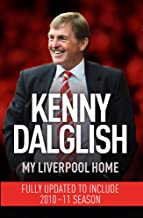 MF: Kenny Dalglish – My Autobiography/My Liverpool Home/Kenny Dalglish: Notes on a Season – As well as a legend of Celtic and Liverpool, Kenny Dalglish wrote his name into the Scottish history books, by being the most capped Scottish player, with 102 caps, and matching Denis Law as Scotland’s top goalscorer. During his career, he won the PFA Player’s Player of the Year and FWA Footballer of the Year twice, whilst being runner-up to Michel Platini for the Ballon d’Or in 1983. He was inducted to both the English and Scottish Football Halls of Fame. As well as two autobiographies, Dalglish’s Notes on a Season compiles his programmes notes from the 1989/90 season as Liverpool manager.
MF: Kenny Dalglish – My Autobiography/My Liverpool Home/Kenny Dalglish: Notes on a Season – As well as a legend of Celtic and Liverpool, Kenny Dalglish wrote his name into the Scottish history books, by being the most capped Scottish player, with 102 caps, and matching Denis Law as Scotland’s top goalscorer. During his career, he won the PFA Player’s Player of the Year and FWA Footballer of the Year twice, whilst being runner-up to Michel Platini for the Ballon d’Or in 1983. He was inducted to both the English and Scottish Football Halls of Fame. As well as two autobiographies, Dalglish’s Notes on a Season compiles his programmes notes from the 1989/90 season as Liverpool manager. Striker: Denis Law – The King: My Autobiography/Denis Law: My Life in Football – Joint top goalscorer in Scotland’s history, Denis Law’s tally of 30 is made all the more impressive having scored them in some 55 games for his country. Missing out on the 1958 World Cup, Law would feature in only the 1974 World Cup but was still named Scotland’s Golden Player – the most outstanding player of the past 50 years – by the Scottish Football Association. He won the Ballon d’Or in 1964 and was included in the PFA Team of the Century. His most recent autobiography was released in 2011.
Striker: Denis Law – The King: My Autobiography/Denis Law: My Life in Football – Joint top goalscorer in Scotland’s history, Denis Law’s tally of 30 is made all the more impressive having scored them in some 55 games for his country. Missing out on the 1958 World Cup, Law would feature in only the 1974 World Cup but was still named Scotland’s Golden Player – the most outstanding player of the past 50 years – by the Scottish Football Association. He won the Ballon d’Or in 1964 and was included in the PFA Team of the Century. His most recent autobiography was released in 2011.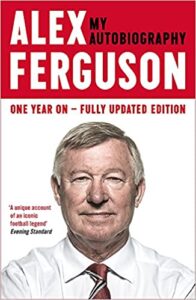 Manager: Alex Ferguson – Managing My Life/My Autobiography/Leading – With no autobiography available by the legendary Scottish manager Jock Stein, despite only a brief spell in charge of the national team, Sir Alex Ferguson is chosen as manager after his incredible success on the domestic front. With an unparalleled haul of team and individual awards, Ferguson stands head and shoulders above most other managers, Scottish or otherwise, in his achievements and legacy. His most recent book, Leading, published in 2015, gives an insight into his managerial philosophy.
Manager: Alex Ferguson – Managing My Life/My Autobiography/Leading – With no autobiography available by the legendary Scottish manager Jock Stein, despite only a brief spell in charge of the national team, Sir Alex Ferguson is chosen as manager after his incredible success on the domestic front. With an unparalleled haul of team and individual awards, Ferguson stands head and shoulders above most other managers, Scottish or otherwise, in his achievements and legacy. His most recent book, Leading, published in 2015, gives an insight into his managerial philosophy. Goal of the round: Scotland fans, look away now, but in truth it’s hard to look beyond Patrik Schick’s curling effort from just inside the Scottish half for the Czech Republic. The 25-year-old may not have been a household name before the tournament, but he’s catapulted himself to Euros fame surely with that goal, which will join the likes of Gazza and Van Basten in being wheeled out every four years. Andriy Yarmolenko can count himself unlucky that his goal against the Netherlands was upstaged by Schick.
Goal of the round: Scotland fans, look away now, but in truth it’s hard to look beyond Patrik Schick’s curling effort from just inside the Scottish half for the Czech Republic. The 25-year-old may not have been a household name before the tournament, but he’s catapulted himself to Euros fame surely with that goal, which will join the likes of Gazza and Van Basten in being wheeled out every four years. Andriy Yarmolenko can count himself unlucky that his goal against the Netherlands was upstaged by Schick. Standout player performance: While Romelu Lukaku and Kalvin Phillips both had strong starts for Belgium and England respectively, there’s one man that continues to dominate on whatever stage he graces – N’Golo Kante. Ask any fan if they’d take Kante in their team and I imagine not one refusal. In fact, it got me wondering, in the way my brain is wont to do, whether I’d prefer a team of Kantes or a team of Ronaldos. The jury is out, but one thing’s for sure, I’d bite your hand off for even one Kante – actually, I wonder if that was what Rudiger was doing to Pogba, but he decided to bite his neck instead of his hand? And when it comes to standout players, it would be impossible not to mention Denmark captain, Simon Kjaer, and his speedy reaction, empathetic response and strong leadership in the face of the most challenging circumstances. If Kante is the Euros general, Kjaer is its absolute commander.
Standout player performance: While Romelu Lukaku and Kalvin Phillips both had strong starts for Belgium and England respectively, there’s one man that continues to dominate on whatever stage he graces – N’Golo Kante. Ask any fan if they’d take Kante in their team and I imagine not one refusal. In fact, it got me wondering, in the way my brain is wont to do, whether I’d prefer a team of Kantes or a team of Ronaldos. The jury is out, but one thing’s for sure, I’d bite your hand off for even one Kante – actually, I wonder if that was what Rudiger was doing to Pogba, but he decided to bite his neck instead of his hand? And when it comes to standout players, it would be impossible not to mention Denmark captain, Simon Kjaer, and his speedy reaction, empathetic response and strong leadership in the face of the most challenging circumstances. If Kante is the Euros general, Kjaer is its absolute commander. Newcomers: North Macedonia played their first ever game in a major tournament, having qualified for the Euros through a play-off against Kosovo. The Lynxes may have lost their first outing 3-1 to Austria, but nevertheless it was a significant moment in the nation’s footballing history, and who other than North Macedonia’s captain, top scorer and top appearance-maker of all time, Goran Pandev, to bag the country’s first ever tournament goal, becoming the second-oldest scorer in the history of the Euros in doing so. North Macedonia face two further tough tests against Ukraine and the Netherlands, but they’ve already made history, so why not once more? Off the pitch, both Nigel de Jong and Emma Hayes have proved to be impressive acquisitions on the media front, as too has Hal Robson Kanu.
Newcomers: North Macedonia played their first ever game in a major tournament, having qualified for the Euros through a play-off against Kosovo. The Lynxes may have lost their first outing 3-1 to Austria, but nevertheless it was a significant moment in the nation’s footballing history, and who other than North Macedonia’s captain, top scorer and top appearance-maker of all time, Goran Pandev, to bag the country’s first ever tournament goal, becoming the second-oldest scorer in the history of the Euros in doing so. North Macedonia face two further tough tests against Ukraine and the Netherlands, but they’ve already made history, so why not once more? Off the pitch, both Nigel de Jong and Emma Hayes have proved to be impressive acquisitions on the media front, as too has Hal Robson Kanu.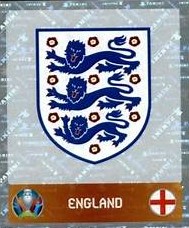 England: A nation waited in expectation, or perhaps with pessimism, as England’s campaign got underway against Croatia. But a 1-0 victory was enough to get fans charting England’s route to the final – after all, we’ve never won an opening game at the Euros before, surely, this is fate?! Or perhaps it was just a disciplined England team beating a subpar Croatia team? Either way, England did the job required of them and a three-point first-round haul was all that could be asked of from the first outing in what was generally an untroubled day at the office for the Three Lions. It’s too early to judge just where England stand on the back of this one performance, but, in truth, there was little in the first-round performances across the board that would give Southgate much cause for concern at this stage.
England: A nation waited in expectation, or perhaps with pessimism, as England’s campaign got underway against Croatia. But a 1-0 victory was enough to get fans charting England’s route to the final – after all, we’ve never won an opening game at the Euros before, surely, this is fate?! Or perhaps it was just a disciplined England team beating a subpar Croatia team? Either way, England did the job required of them and a three-point first-round haul was all that could be asked of from the first outing in what was generally an untroubled day at the office for the Three Lions. It’s too early to judge just where England stand on the back of this one performance, but, in truth, there was little in the first-round performances across the board that would give Southgate much cause for concern at this stage.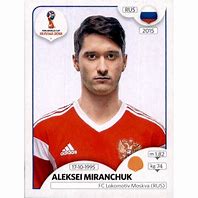 Group B: Finland (0) 0 – 1 (1) Russia
Group B: Finland (0) 0 – 1 (1) Russia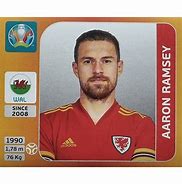 Group A: Turkey (0) 0 – 2 (0) Wales
Group A: Turkey (0) 0 – 2 (0) Wales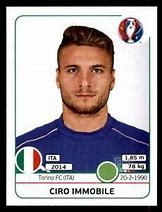 Group A: Italy (0) 0 – 3 (0) Switzerland
Group A: Italy (0) 0 – 3 (0) Switzerland
 Messi or Ronaldo? Ronaldo or Messi? Forget nature v nurture, leave v remain, Corrie v EastEnders, the most hotly contested question of our day and age comes down to the choice between a footballer from Argentina and one from Portugal (who said that society hasn’t progressed?). And it is a question that can divide opinion even among the most united in all other opinions. Messi devotees will point to his superior assists, his dribbling, his team play and his greater individual awards, whilst Ronaldo supporters will cite his club goals, his success in multiple leagues, his incredible athleticism and a superior international record. And whilst debates over who is better are likely to continue for as long as these two keep going – or one of them retires – Ronaldo has ensured his status as ‘greatest of all time’ in Euros history, with a host of records tumbling in his first outing in Euro 2020. Sorry, Messi, this is one arena in which you can’t compete with Ronaldo, in fact no one can.
Messi or Ronaldo? Ronaldo or Messi? Forget nature v nurture, leave v remain, Corrie v EastEnders, the most hotly contested question of our day and age comes down to the choice between a footballer from Argentina and one from Portugal (who said that society hasn’t progressed?). And it is a question that can divide opinion even among the most united in all other opinions. Messi devotees will point to his superior assists, his dribbling, his team play and his greater individual awards, whilst Ronaldo supporters will cite his club goals, his success in multiple leagues, his incredible athleticism and a superior international record. And whilst debates over who is better are likely to continue for as long as these two keep going – or one of them retires – Ronaldo has ensured his status as ‘greatest of all time’ in Euros history, with a host of records tumbling in his first outing in Euro 2020. Sorry, Messi, this is one arena in which you can’t compete with Ronaldo, in fact no one can.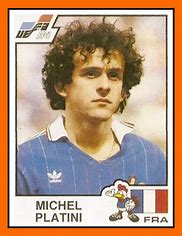 All-time top scorer at the Euros – I must admit to some surprise that the goalscoring record for the Euros previously stood at 9, held by Michel Platini. Ronaldo obviously shared my surprise and sought to boost that number to a healthier total by bagging a brace, and in doing so catapulting himself to the top of another chart and putting some daylight between himself and his competitors. Now on 11 goals, you wouldn’t bet against that number rising, though Portugal perhaps don’t have the easiest of matches coming up to get out of the group. And despite scoring 11 goals, Ronaldo has only netted against five different opponents (Greece, Netherlands, Czech Republic, Hungary and Wales), so he’ll have to break that if he’s to improve his tally against France and Germany. Incidentally, in terms of most goals including qualifying, no guesses for who claims that record – Ronaldo holds some 27-goal advantage over his nearest rival, Zlatan Ibrahimovic, so I suspect this one may stand the test of time, as perhaps will his record as Portugal’s top goalscorer, where he sits almost 60 goals ahead of Pauleta (and some 40 caps ahead of Joao Moutinho).
All-time top scorer at the Euros – I must admit to some surprise that the goalscoring record for the Euros previously stood at 9, held by Michel Platini. Ronaldo obviously shared my surprise and sought to boost that number to a healthier total by bagging a brace, and in doing so catapulting himself to the top of another chart and putting some daylight between himself and his competitors. Now on 11 goals, you wouldn’t bet against that number rising, though Portugal perhaps don’t have the easiest of matches coming up to get out of the group. And despite scoring 11 goals, Ronaldo has only netted against five different opponents (Greece, Netherlands, Czech Republic, Hungary and Wales), so he’ll have to break that if he’s to improve his tally against France and Germany. Incidentally, in terms of most goals including qualifying, no guesses for who claims that record – Ronaldo holds some 27-goal advantage over his nearest rival, Zlatan Ibrahimovic, so I suspect this one may stand the test of time, as perhaps will his record as Portugal’s top goalscorer, where he sits almost 60 goals ahead of Pauleta (and some 40 caps ahead of Joao Moutinho).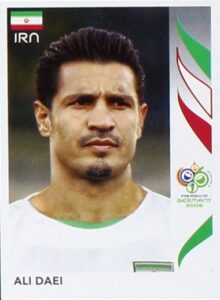 With at least two games in which Ronaldo will most likely feature, it’s possible for the records to keep on tumbling, and one that’s been in everyone’s sights (including surely Ronaldo’s) in recent years has been Ali Daei’s international goalscoring record of 109 goals. Now sitting on 106, Ronaldo could feasibly add this to his record haul, but, again, given the games that lie ahead, it won’t be easy – but then scoring 106 goals isn’t easy in itself and if there is one man/machine that can do it, it’s surely Europe’s G.O.A.T. Ronaldo also currently sits two behind Karel Poborsky on most assists in the Euros with 6 and one behind Zidane et al for most penalties scored – a hugely feasible 2, whilst Ronaldo would need to feature in every game through to the semi-finals to surpass Sergio Ramos as the most capped European international. Whilst there’s not much you’d put past this superhuman, Jude Bellingham and Johan Vonlanthen can breathe a sigh of relief that their youngest player records are secure and Michel Platini’s record of 9 goals in a single tournament will need a gargantuan effort even from Ronaldo. But if Ronaldo wants to add another record to his haul, how about fastest goal? I’ll be setting my stopwatch for 66 seconds when Portugal take on Germany on Saturday and I wouldn’t bet against him. Who knows, maybe even Messi will be watching on to see what other records his rival sets.
With at least two games in which Ronaldo will most likely feature, it’s possible for the records to keep on tumbling, and one that’s been in everyone’s sights (including surely Ronaldo’s) in recent years has been Ali Daei’s international goalscoring record of 109 goals. Now sitting on 106, Ronaldo could feasibly add this to his record haul, but, again, given the games that lie ahead, it won’t be easy – but then scoring 106 goals isn’t easy in itself and if there is one man/machine that can do it, it’s surely Europe’s G.O.A.T. Ronaldo also currently sits two behind Karel Poborsky on most assists in the Euros with 6 and one behind Zidane et al for most penalties scored – a hugely feasible 2, whilst Ronaldo would need to feature in every game through to the semi-finals to surpass Sergio Ramos as the most capped European international. Whilst there’s not much you’d put past this superhuman, Jude Bellingham and Johan Vonlanthen can breathe a sigh of relief that their youngest player records are secure and Michel Platini’s record of 9 goals in a single tournament will need a gargantuan effort even from Ronaldo. But if Ronaldo wants to add another record to his haul, how about fastest goal? I’ll be setting my stopwatch for 66 seconds when Portugal take on Germany on Saturday and I wouldn’t bet against him. Who knows, maybe even Messi will be watching on to see what other records his rival sets. Group E: Hungary (0) 0 – 3 (0) Portugal
Group E: Hungary (0) 0 – 3 (0) Portugal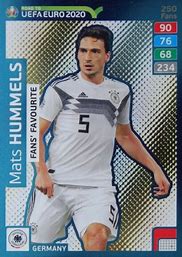 Group E: France (0) 1 – 0 (0) Germany
Group E: France (0) 1 – 0 (0) Germany Group E: Poland (0) 1 – 2 (1) Slovakia
Group E: Poland (0) 1 – 2 (1) Slovakia Group E: Spain (0) 0 – 0 (0) Sweden
Group E: Spain (0) 0 – 0 (0) Sweden